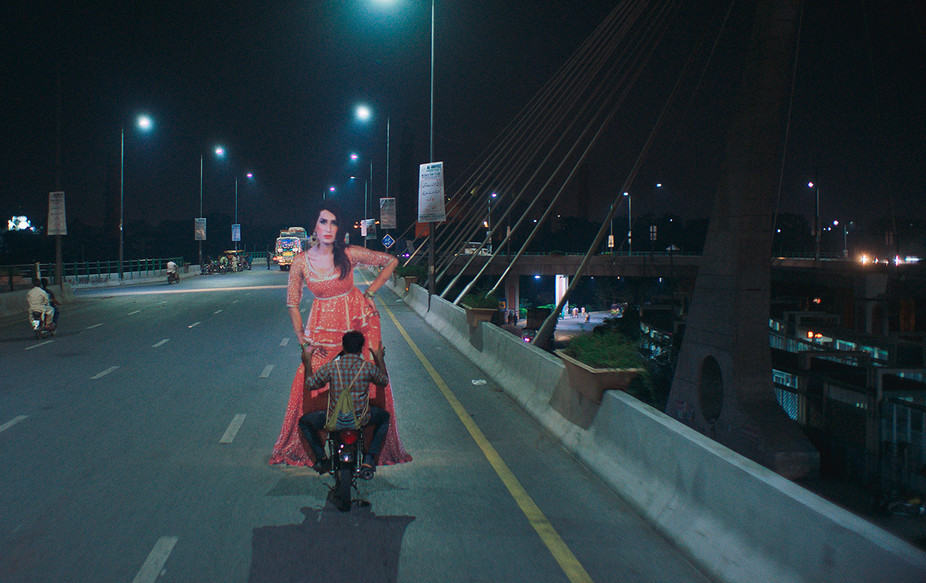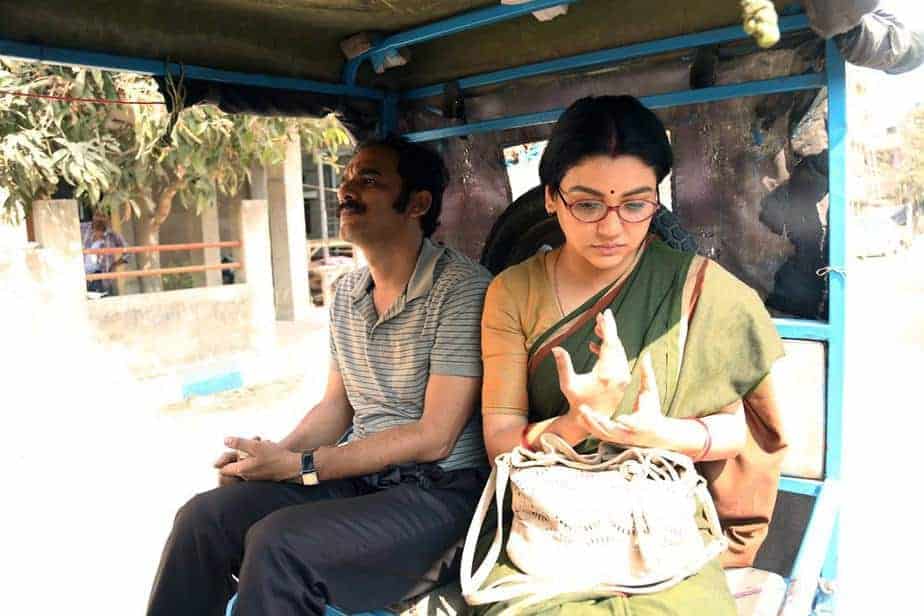The first ever Pakistani film selected to screen in Cannes draws its title from the eponymous amusement park in Lahore, a place that offers refuge to people who seek acceptance, or brief moments of joy.
“Joyland” is screening at San Diego Asian Film Festival Spring Showcase

Saim Sadiq returns to the topic of sexual identity and patriarchal structures that strongly dominate his homeland, and to the milieu of the erotic dance theatre he has already explored in his wonderfully accomplished short “Darling”, which won the Orizzonti Competition in Venice 2019. Starring Ali Junejo as Haider, a young man living according to tradition, dancing to the tunes of his father and his hoarse older brother Saleem (Sohail Sameer), “Joyland” speaks of repressed desires of both sexes, strongly divided gender roles, and a never ending chain of compromises someone who doesn't fit into such image has to make.
Haider lives in an arranged marriage with Mumtaz (Rasti Farooq). She is a strong-willed, intelligent woman whose only condition to enter the union was to be able to work, and gain her own money. The arrangment between the spouses works fine until the moment Haider gets a job as a backup dancer in one of the city's most notorious clubs, in an artistic troup headed by the transgender woman Biba (Alina Khan). The true nature of his posting is known only to Mumtaz, and the rest of the family believes him to be a stage manager who is paid well enough to be asked further questions.
This is the moment that comedic elements start to penetrate the story, as we observe Haider's attempts to fit in the theatre group and learn how to dance. But the rehearsals slowly become the symbol for his desire to break free, and it comes to the shift in tone: confusion and guilt take over.
The stifle patriarchal rules reigning in the house of Haider's father (Salmaan Peerzada) make more than two people unhappy, and the drama begins with his sister-in-law Nucchi (Gilat Sarwani) giving birth to ‘yet another daughter' to the disappointment of the family who was expecting to finally get a heir. As someone who once upon a time dreamt of working in her profession as an inner decorator, Nucchi had to succumb to her despotic husband's rules to embrace her role as a mother and housewife, the only thing fitting for a woman. “Why decorating other's people houses, when you can decorate your own?”, she quotes Saleem at one point while discussing family matters with Mumtaz. But, unlike her silent acceptance of the situation, the other woman lives her dream resisting the preassure imposed by her husband's family to breed children, and the couple lives in a joyous union much to the irritation of other men in the house. Notwithstanding, the resistance will become futile the moment Haider gets a job as he was the only one helping Nucchi with the house chores. This will change everything, not just for her but for everybody else in the household.
Although the story revolves around Haider and his discovery of the world he wasn't aware of until he unexpectedly stepped into it, the film bravely explores many aspects of the Pakistany society through a chain of events happening in one family. Sadiq shows everyday life in tiniest details, paying attention to the untold, through observant shots from afar. But in the case of the burgeoning love between Haider and Biba, close-ups serve to put more accent on the body language and the supressed sexual tension that slowly transforms into a relationship that none of them can deal with the way they would want to.
“Joyland” is the sum of many finely interwoven stories, both gentle and tragic. The script is brave for its depiction of sexual awakening, involving some scenes never seen before in a Pakistani movie, but at the same time it approaches its characters with lots of care and respect. Khan steals the show every time she appears on the screen in her emotionally charged role as free spirited Biba who fights to be accepted as a woman, but fails at that task precisely with the man she falls for.
The feature debut by Saim Sadiq won't be only remembered as the first film representing Pakistan at one of the most internationally important film festivals, it is at the same time one of the strongest contenders of this year's Un Certain Regard competition.















